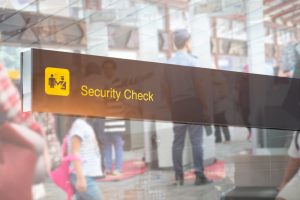Among the most common complaints passengers make against the TSA is that procedures are often so wildly inconsistent. What might be allowed to stay in your bag during the outbound screening may be scrutinized, or even confiscated, on the return.
The issue has become murkier since October 2107 when the TSA introduced heightened screening procedures of domestic passenger’s smartphones, laptops, and other electronic devices.
Can the TSA search electronic devices without a warrant?
As of Monday, the ACLU of Northern California filed a lawsuit against the TSA after recent reports that the agency has searched the smartphones and laptops of passengers traveling domestically, without providing passengers with any reason.
“Our phones and laptops contain very personal information, and the federal government should not be digging through our digital data without a warrant, “ said Vasudha Talla, a staff attorney with the ACLU.
The ACLU had made previous requests under the Freedom of Information Act (FOIA) for the TSA to disclose all documents related to these types of searches, along with any info on data extraction. The TSA failed to respond to the initial request filed in December.
U.S. Customs and Border Protection sparked criticism last year after a sharp rise in the number of electronic devices searched. International passengers arriving to the U.S. were sometimes asked to unlock their smartphones and provide passwords for social media accounts.
While this, too, is being contested, federal agencies have been more transparent about their policies on electronic device searches at the border. Meanwhile, “policies on searching electronic devices of domestic air passengers remains shrouded in secrecy,” says the ACLU in its lawsuit.
If your electronic devices are taken or searched during a security screening, the ACLU recommends writing down the name, badge number, and agency of the person conducting the search, as well as filing a complaint with that agency.
You can read the ACLU’s lawsuit in full here.






